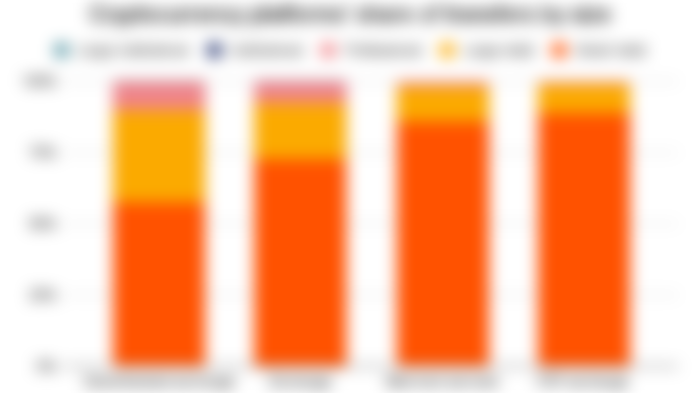In October 2019, before the COVID-19 pandemic hit, Bitcoin was worth just above USD9,000. Ethereum, the largest altcoin by market cap, was worth USD183. Solana and Avalanche did not exist. AXS was not yet trading and gamers around the world did not know of Axie Infinity.
Fast forward to the present day. Cryptocurrency, decentralized finance and blockchain gaming has taken the world by storm, and the established financial industry is scrambling to keep up. Today, we see widespread global adoption and the traditional banks pushing back against proposed severe cryptocurrency regulations even as the SEC and other global regulators continue on a warpath.
Let's talk about it.
How did the COVID-19 pandemic and cryptocurrency markets intersect?
At the end of December 2019, the world first learned of the novel coronavirus (COVID 19) following an outbreak in Wuhan City, China. On January 30th, 2020, the WHO declared COVID-19 a public health emergency of international concern (PHEIC) and by March 2020, as cases spread rapidly outside China, the outbreak was characterized as a pandemic.
Global economies suffer
During the pandemic, as governments around the world implemented restrictions such as travel bans, school closures, and curfews, the lives of billions were affected and global economies ground to a halt.
Simultaneously, it can be argued, cryptocurrency adoption soared.
Crypto prices skyrocket
By the end of 2020, following Bitcoin's halving event in May 2020, BTC was trading for approximately USD29,000 in its run up to peak at just under USD58,000 in March 2021. Were the two interrelated or was the run up solely as a result of Bitcoin's halving?
Whatever the cause, global awareness of cryptocurrency markets increased over the past 24 months as this period saw an influx of private investors, public companies and underbanked individuals all seeking to capitalize on the benefits of digital currencies.
Developing economies take the lead
According to Chainalysis' 2021 Global Crypto Adoption Index, worldwide cryptocurrency adoption jumped over 880% with peer to peer (P2P) platforms driving cryptocurrency usage in emerging markets.


With all of this money flowing into cryptocurrency investing, it was only a matter of time before the banks followed.
Cryptocurrencies and the traditional banking system
Initially, the traditional banking system's response to cryptocurrency was to condemn it as too risky and a threat to the economy.
In 2017, JP Morgan CEO Jamie Dimon famously dismissed cryptocurrencies in a CNBC interview. Referring to government's opposition to a currency existing outside their realm of control, Dimon said of bitcoin: "It's just not a real thing, and eventually it will be closed."
Similarly, Deutsche Bank analyst and Harvard University lecturer Marion Laboure also expressed concern and questioned bitcoin's ability to develop into an asset class.
In a paper titled, Bitcoins: Can the Tinkerbell Effect Become a Self-Fulfilling Prophecy? Laboure, while conceding that bitcoin was too large to ignore, stated instead that: "The value of bitcoin is entirely based on wishful thinking." Referring to the Tinkerbell effect, she said the currency's value rises and falls depending on what people believe it is worth.
Today, however, traditional banks are increasingly reviewing investment options for clients interested in trading in cryptocurrencies, and in so doing, are vigorously opposing new restrictions proposed by global banking regulators to govern institutions seeking bitcoin exposure, among them, it seems, JPMorgan and Deutsche Bank. Now, if that doesn't take the cake!
The Basel Committee Proposal
In June 2021, the Basel Committee on Banking Supervision, a group of regulators from the world’s most prominent financial centers, proposed restrictions requiring banks to set aside enough capital in reserve, so as to cover in full any losses on bitcoin holdings.
The Basel Committee, which includes the Federal Reserve, the ECB, and other major central banks, sets minimum standards by which regulators worldwide are expected to abide.
In its consultative document, the Basel Committee classified crypto assets into the following two categories:
Tokenised traditional assets and fiat-backed stable coins, and
Cryptocurrencies, such as bitcoin, with no asset backing them
In the case of the latter category, the committee flagged the group as high risk and suggested that they be subject to a new conservative prudential treatment amounting to a capital requirement of 1,250% to cover losses from activities such as lending.
Traditional banking giants aren't having it
On Tuesday of this week, the Global Financial Markets Association (a forum for banks that includes JPMorgan and Deutsche Bank), the Financial Services Forum, the Futures Industry Association, the Institution of International Finance, the International Swaps and Derivatives Association, and the Chamber of Digital Commerce, published a joint 64 page letter describing the new rules as prohibitive and calling for their revision in the “near to medium term”.
The banks argued that the Basel Committee's recommended high capital requirements for crypto assets could price traditional banks out of participation in crypto investing as even larger banks and institutions with the capital to back crypto holdings would be unable to meet the growing demand for cryptocurrencies among their customers.
“The prudential framework envisaged by the consultation would create material impediments to regulated bank participation in crypto asset markets,” the banks stated, pointing out that more banking involvement would help make the underlying blockchain technology more widely available and bring “tangible benefits for the real economy”.
Unfortunately, while banks may be softening their view on cryptocurrency investing, regulators are not. And if the pronouncements of Securities and Exchange Commission (SEC) Chairman Gary Gensler is anything to go by, there are some rough days ahead for the cryptocurrency industry.
Regulators get ready to Rumble
During a live-streamed interview titled "The Path Forward" with Washington Post columnist David Ignatius on Tuesday, Gensler was critical of the cryptocurrency industry, comparing it to the wildcat banking era, and suggesting that it wouldn't be viable in the long run.
In this assessment, Gensler has found common ground with many others who share a conservative view around the evolution of cryptocurrency.
Take for example, 78 year old economist and professor at John Hopkins university Steve Hanke who was even more dismissive, who also tweeted on Tuesday that Bitcoin was nothing more than a highly speculative asset with a fundamental value of zero.
#Bitcoin is not the "currency of the future”. In fact, it’s not a currency at all. Its extreme volatility is a constant reminder that it will NEVER serve as a true currency. Bitcoin is nothing more than a highly speculative asset with a fundamental value of ZERO.
Gensler reserved his harshest comments for stable coins, however, equating those with poker chips at the casino.
He further suggested that the SEC would be stepping up enforcement against cryptocurrency trading firms, since many continue to operate outside the bounds of securities law.
And so, to conclude, I'll state the obvious: the forecast is rough seas ahead. But anyone trading cryptocurrency would have had to adjust to storm clouds, high winds and choppy waters.
Resources
https://www.cnbc.com/2019/12/20/jp-morgan-ceo-jamie-dimon-in-2017-calls-bitcoin-a-fraud.html
https://www.statista.com/statistics/326707/bitcoin-price-index/
https://blog.chainalysis.com/reports/2021-global-crypto-adoption-index
https://www.cnbc.com/2019/12/20/jp-morgan-ceo-jamie-dimon-in-2017-calls-bitcoin-a-fraud.html
https://www.statista.com/statistics/326707/bitcoin-price-index/
https://cryptobriefing.com/basel-committee-crypto-rules-face-backlash/
https://blog.chainalysis.com/reports/2021-global-crypto-adoption-index
https://cryptobriefing.com/basel-committee-crypto-rules-face-backlash/
https://www.washingtonpost.com/business/2021/09/21/sec-gensler-crypto-stablecoins/
https://www.washingtonpost.com/business/2021/09/21/sec-gensler-crypto-stablecoins/

